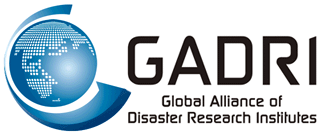- Home
- About
- Events
- Members
- About Members
- Member Institutes
- Algeria
- Argentina
- Australia
- Austria
- Bangladesh
- Brazil
- Bulgaria
- Canada
- China, People's Republic of
- Colombia
- Ecuador
- Egypt
- European Commission
- France
- Germany
- Ghana
- Hong Kong (People's Republic of China)
- India
- Indonesia
- Iran (Islamic Republic of)
- Israel
- Italy
- Japan
- Korea, Republic of
- Lao PDR
- Malaysia
- Mexico
- Morocco
- Nepal
- New Zealand
- Oman
- Phillippines
- Slovakia
- South Africa
- Sri Lanka
- Sudan
- Sweden
- Switzerland
- Chinese Taipei
- Thailand
- Turkey
- United Kingdom
- United States
- Vietnam
- Zimbabwe
- Membership
- Activities
- Resources
- GADRI Archives
 |
Global Risk Forum GRF DavosDavos Platz |
|
Outline As the chairman and the organiser of the first IDRC Davos 2006, Walter J. Ammann implemented this request by founding the Global Risk Forum GRF Davos as the institutional framework. GRF Davos is since 2008 the organiser of the IDRC Davos conferences and promotes the worldwide exchange of know-how and expertise, creates solutions and fosters good practices in integrative risk management and climate change adaptation. GRF Davos aims through research, implementation, advocacy and networking activities at serving as a Centre of Excellence in knowledge and know-how exchange for the application of timely and appropriate risk management strategies, tools and practical solutions. GRF Davos is the publisher of two international electronic journals, namely Planet@Risk and the International Journal for Disaster Risk Reduction together with the publisher Elsevier. Research Achievements and Challenges: We aim to improve the understanding, assessment and management of risks and disasters affecting human safety, security, health, the environment, critical infrastructures, the economy and society at large. Our inside expertise, coupled with the experience and knowledge of our global network of engineers, consultants, and scientists, enable us to deliver projects in various domains. We provide services and do research in monitoring processes, risk analysis and provide solutions for the implementation of measures. We intervene in each phase of the disaster risk reduction cycle (prevention, intervention, recovery) with local and international projects contributing to lower collateral and human losses and a safer world. Our research focuses on: - Integrative Disaster Risk Management processes - Resilience - Vulnerability - Natural Hazards - Climate Change Adaptation and Mitigation - Business Continuity - Sustainable Development - Capacity Building, awareness raising Our main goals are:
To provide and manage a network for decision-makers, practitioners and experts from politics, government, IGOs, business, science, NGOs, media and the public [detail] --> |
|
 |
Institute of Earth Sciences, Faculty of Geosciences, University of LausanneLausanne |
| Outline The environment and its relations with society are at the heart of research and teaching in the Faculty of Geosciences and Environment. This broad subject area is examined through a disciplinary approach (geology, geography) and an interdisciplinary approach (environmental sciences) at the interface of natural, human and social sciences. Teachers-researchers at the Institute of Earth Sciences and the Institute of Earth Surface Dynamics analyse and model historic and recent processes testifying to physical, chemical and biological changes on our planet linked to natural and anthropogenic factors. Teachers-researchers at the Institute of Geography and Durability are interested in the organisation of space, ecological thought, relations between society and the environment, and the sustainability of our ways of life. Taking into account the complexity, plurality and diversity of geo-environmental challenges, educational programmes at the Faculty of Geosciences and Environment are based on fundamental sciences (mathematics, natural sciences, and human and social sciences) and their reconfiguration, combination and application in the real world. In addition, they find expression in different terrains, including Alpine and urban environments, not only in Switzerland, but also in Europe and elsewhere. After completing a core programme of multidisciplinary courses, students in geosciences and environment can specialise in a number of disciplinary and interdisciplinary fields. [detail] --> |
|


